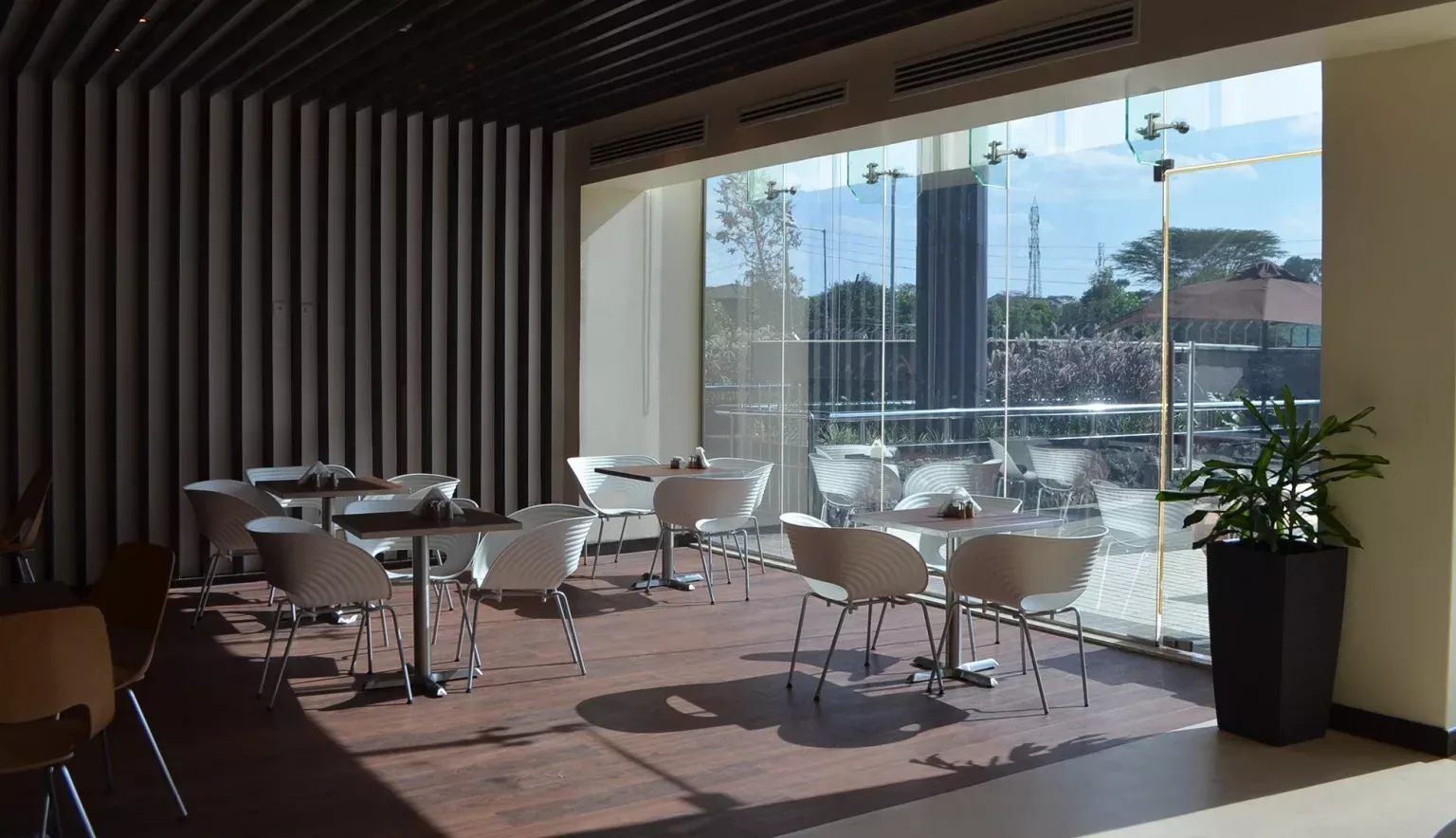For Andrew Gremley and Pharos Architects Ltd, sustainability must add practical and pragmatic value to a building, the firm pioneering a number of sustainable firsts in Kenya and South Sudan.
THE SUSTAINABLE PRAGMATIST
Ask two people for their definition of sustainability and you will be lucky to receive identical, even similar answers.
It is a term which, despite dictionary disputes, has managed to work its way into the daily dialogue and manoeuvrings of personal and working life, the need for individuals to live and corporations to act more ‘sustainably’ almost universally accepted.
But differences of opinion, often within the same professional disciplines, remain.
Take the architecture and building design trade. There are many internationally recognised standards such as LEED and EDGE which many aspire to, though how to get there is subject to a world of different approaches, priorities and attitudes.
“There are a lot of clichés bandied around about architects and sustainability, but our stance is what I would call a pragmatic approach to sustainability,” muses Andrew Gremley, Founder and co-Director of Nairobi-based Pharos Architects.
Involved in establishing the Kenyan Green Building Council, Gremley admits that sustainability is an inescapable consideration for architects on virtually all projects, the dialogue surrounding the subject ramping up immeasurably since he went into business in the 1990s.
His main motivation for moving to Africa from the US was not environmental, however –rather, it was the opportunity to impact people.
“I come from and studied in the United States and after graduation I ended up in a number of fairly dull jobs, so I decided to pursue an alternative which took me to Africa, Tanzania first and then Kenya,” Gremley recalls.
“I was working on shopping malls and airports and over time became more intrigued by work in developing countries, projects which can help people more directly as opposed to boosting the bottom lines of corporations. Straight away we did projects on schools and hospitals in mostly poor urban and rural areas.”
In 1998 Gremley struck out on his own under the name WEGS Consultants, later changed to Pharos Architects. Returning home to Kenya from the UK, architect Jasraj Sehmi later joined Gremley and together they formed Pharos Architects Ltd as a limited partnership.
Today, it specialises in donor-funded development projects such as schools, hospitals and medical research clinics, private houses, villas and other residential developments, with specialisations including green architecture, biocontainment and high security installations such as embassies.
“We have gone a little more commercial lately with projects covering restaurants and coffee chains, but our main focus still tends to be schools and hospitals. For about 10 years we had a full-time presence in South Sudan until the civil war forced us to step back a little bit. Outside of our home market Kenya we do some work in Rwanda and Uganda, where we have an office.”
A PRAGMATIC APPROACH TO SUSTAINABILITY
The conversation soon turns back to the subject of sustainability, a hallmark of many Pharos projects over the years.
Gremley cites a number of national and regional firsts, including the first LEED-certified building in the region with its project for the World Bank in South Sudan, followed up by a first in Kenya with the same client on an interior office fit-out in Nairobi.
Further, the company also attained LEED Gold certification for the French Embassy build in the Kenyan capital, with another building for the International Red Cross currently undergoing certification.
“There is also a certification process called EDGE,” adds Gremley, “and we worked on the second single family residence in the world and first in Africa to be certified. We are also working on an EDGE-certified hospital, KRIL.
“So, what I mean by the pragmatic approach is that sustainability coincides with what we see as the necessary elements for a building to have –it is practical, not gimmicky. We don’t push every aspect of certification and make token gestures. Rather, we fight hard for the ones which can make a difference.”
“A lot of this requires innovation, and here we have been working particularly hard on water systems.
“We’ve come up with solutions designed for developing countries, where municipal water may not be available and there are lots of issues with both water shortages and flooding. This is very project-specific, bespoke work as opposed to implementing solutions straight out of a textbook.”
Gremley circles back to the French Embassy project as a case in point.
Here, a substantial focus was placed on the water system as it is located in an area that is prone to flooding, the building sat in the vicinity of several waterways. One of the rainwater runoff solutions identified by Pharos was a green roof, an aspect of the design the firm had to work hard on given the constraints it faced regarding availability of materials.
“Generally, much of our focus on water recycling is centred around recycling sewage rather than collecting rainwater, which is not always the most practical solution as it depends entirely on when it rains,” Gremley explains.
“We therefore tend to encourage sewage recycling through a technologically driven process as opposed to a manual one, involving things like water retention ponds, natural wetland systems and careful implementation of plumbing and water tanks.”
LOOKING AHEAD
This concept of pragmatic sustainability will continue to define Pharos Architects projects into next year, not least with the likes of KRIL Hospital which is slated for completion in the coming months.
Future success will also rely on cooperation and collaboration with partners and suppliers, Gremley quick to point out their importance and how the company has been helping to promote the development of sustainable building materials through the likes of the Kenyan Green Building Council.
Key to Pharos’ longevity according to the Director, however, is the firm’s 19-strong team of employees.
In his concluding remarks, Gremley iterates the importance of nurturing and keeping the best industry talents inside the organisation.
“Mentoring is vital, as we do not want to cycle through staff,” he says. “We want them to stay with us for the long term and keep them interested and informed with what is going on in the industry.
“At this time the market is a little slow and there are a lot of bright and talented architecture graduates about, so it is a case of selecting the right people and building them up with the company over time.
“This will enable us to carry on what we’re doing and continue to execute projects. We’re doing well in a slightly challenging market, but generally we are looking for steady expansion which includes new markets if we can find them.”

































